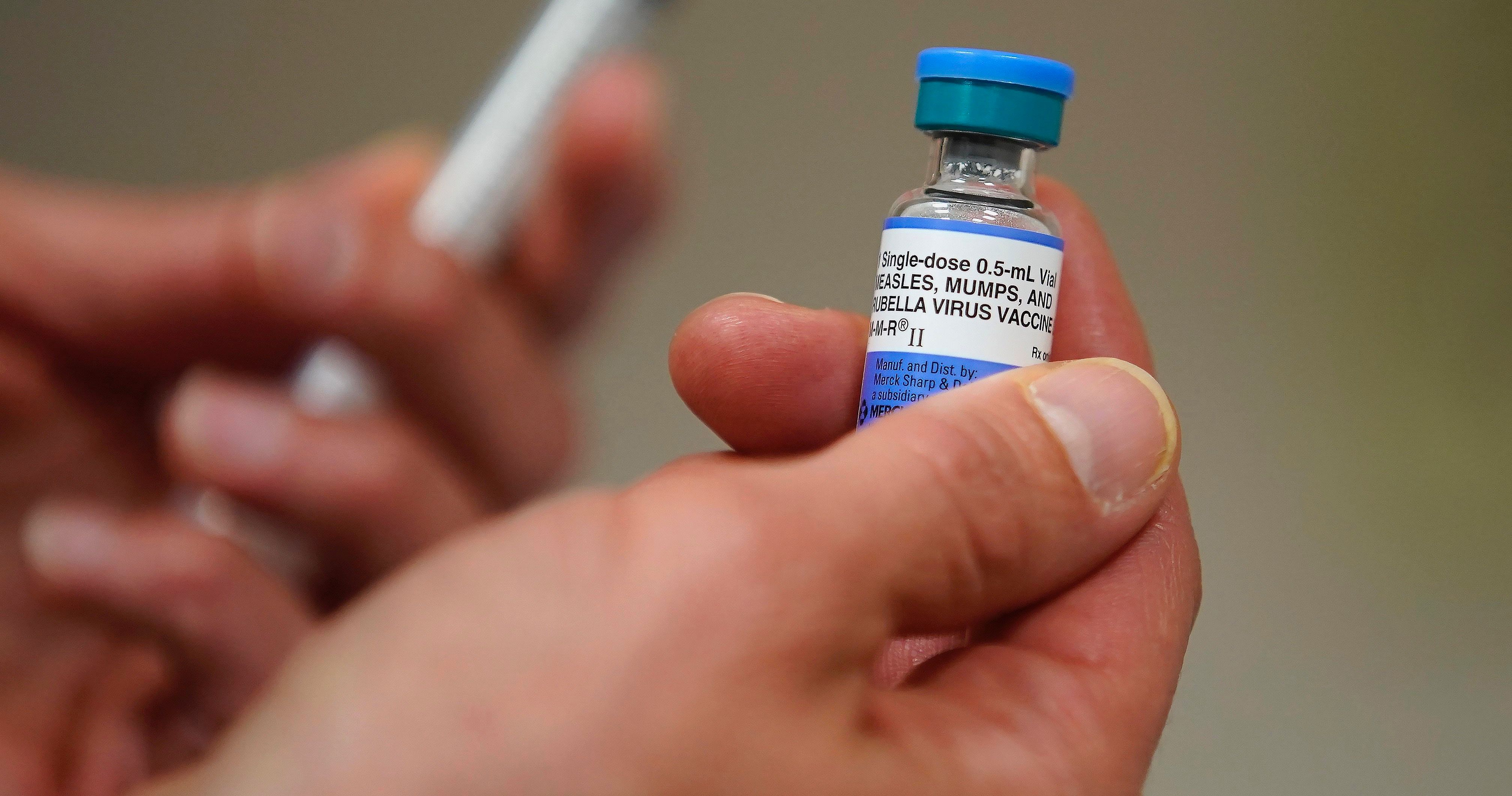Before planning a trip with newborns, parents should take into account the risks associated with traveling with an unvaccinated child. Most infants are not given the MMR vaccine, which protects against measles, mumps and rubella, until they are at least 12 months old, therefore, traveling to areas where outbreaks have been reported can be dangerous.
Recently, outbreaks have occurred around the globe in both underdeveloped and developed countries, like the United States. As of April 25, the number of measles cases reported in the US was 695 — the highest number in any year since the disease was eradicated in the country in 2000, the Centers for Disease Control and Prevention (CDC) say. Worldwide, the number of cases in the first three months of 2019 were triple the amount recorded in the first three months of 2018, according to the World Health Organization (WHO).
Those traveling to countries with outbreaks — including Ukraine, Israel and the Philippines — have returned with the disease and infected others who were not vaccinated, says Kristen Nordlund, a CDC spokeswoman. A large number of cases have been detected in Washington state and New York City.
Last week, a student at the University of California at Los Angeles and another at California State University at Los Angeles were diagnosed with measles, which required hundreds of students, faculty and staff members at both schools to be quarantined until they could present proof of immunization. Travelers have also been warned about possible exposure at Los Angeles International Airport after five cases of measles were confirmed in Los Angeles County.
“The measles outbreak is kind of a sad story because it’s completely preventable,” says Sanjay Jain, director of the Center for Infection and Inflammation Imaging Research and a professor of pediatrics at Johns Hopkins University School of Medicine. “You have a pretty efficacious vaccine that works pretty well. People are just misinformed.”
Most children routinely receive the MMR vaccine between the ages of 12 and 15 months, and then a booster shot is given between the ages of 4 and 6. The CDC, however, recommends that babies between 6 months and 11 months old receive the MMR vaccination before traveling internationally to areas affected by outbreaks. Children under the age of 6 months are not given the MMR vaccine because experts believe antibodies that have been passed on from the vaccinated mother in the third trimester are still present. Since the MMR vaccine contains a live virus, the antibodies would render the vaccine ineffectual.
Also, the vaccine is usually more effective when administered at 12 months than before. “It’s not like at 6 months, all the antibodies go away. It’s not a magical number,” says Jain, who recommends checking for travel warnings and outbreaks in the area you are traveling to. It is also important to consider if your baby was born full-term and is healthy. “I think you have to think very, very hard about it,” she says. “Common sense would be critical.”
RELATED: Mom Blasts Anti-Vaxxers After Her Five-Month-Old Baby Gets Measles
For children who have not been vaccinated, are older than 12 months and are planning international travel, the first MMR shot and a booster can be given within 28 days of each other. Traces of immunity can be detected within a few days, according to the CDC, and a child will be fully protected within two to three weeks. If a child cannot be vaccinated due to an immunosuppression, the CDC says, travel should be postponed since they are more likely to suffer severe complications if they get infected with the measles.

